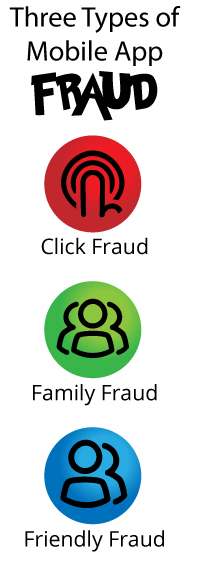Digital Goods Chargebacks—Merchants Gotta Catch ‘em All!
More than a month after the game’s July 6, 2016 release, Pokémon GO remains a global phenomenon. The game dominated the App Store and Google Play, exceeding Facebook, Twitter, and Instagram in number of daily users and topping 100 million downloads worldwide.
What lessons can merchants learn from this overnight phenomenon?
How Do Developers Monetize Free Apps?
Even though the app is free to download, Pokémon GO is expected to generate more than $1 billion in revenue by the end of 2016. How is this possible?
Like other app developers, Pokémon GO’s Niantic offers the games for free and then charges for in-app purchases. These in-app purchases could be anything from character upgrades to special items that give the player an edge over their competition.
In Pokémon GO, players can choose to play the game using only items they find along the way, or they can buy “PokéCoins,” the in-game currency, to buy more or better items. These items can allow you to store more goods, raise more powerful characters, or attract more Pokémon to your location.
The model employed by Pokémon GO seems to work—as of mid-August, more than one million players in the U.K. alone made in-app purchases through the game.
It’s clear that the game is a commercial success; however, Niantic—and any other game developer in a similar position—shouldn’t celebrate the increase in sales just yet.
How Fraud Affects the App Industry
 With games like Pokémon GO and other mobile apps, specific forms of fraud are the most common avenues for revenue loss. There are a number of different strategies people might employ in order to commit fraud on a mobile app.
With games like Pokémon GO and other mobile apps, specific forms of fraud are the most common avenues for revenue loss. There are a number of different strategies people might employ in order to commit fraud on a mobile app.
Friendly Fraud and Cyber Shoplifting
Some updates to the game have left a number of fans dissatisfied. They claim the game is simply not the product developers promised when they made a purchase. As a result, many people requested refunds and chargebacks for in-game PokéCoin purchases.
Even if players have legitimate complaints about the game, filing chargebacks without first contacting the game’s developers is an example of mobile app friendly fraud.
Because of the widespread dissatisfaction with certain game elements, players’ grievances are well-known. While many people have legitimate complaints, others see this poorly managed situation as an opportunity to get something for free. Customers are filing false claims and essentially engaging in cyber shoplifting.
Family Fraud
Family fraud is another issue that’s common with mobile apps. Young children, often unaware of the consequences of their actions, will make in-app purchases without the knowledge or consent of their parents.
When parents discover the charges, they contact the bank and request a chargeback. These chargebacks, often referred to as family fraud, fall in a grey area. These purchases might technically be unauthorized, but they could also be blamed on a lack of parental supervision and irresponsible cardholder behavior made by adults who should know better.
Click Fraud
Affiliate fraud can take shape on mobile apps in the form of mobile click fraud. Because advertisers pay sites based on number of clicks, this “click fraud” is the practice of clicking on ads solely to earn money from advertisers.
Even more widespread than deliberate click fraud, however, is accidental clicks. Nearly half of all mobile app users claimed to click on mobile ads by mistake more often than they do so intentionally.
Responding to App and Gaming Fraud
What can be done to counter the wave of fraud that is hitting mobile app developers and the platforms that sell their products? It seems everyone is taking a different approach.
Apple allows users to return apps and other digital media purchased through iTunes and the App Store within 90 days of the good’s purchase. Google Play makes a similar guarantee, but in most cases, returns are only allowed within the first 48 hours after the good’s purchase.
Unfortunately, while this may prevent customers from going to their bank for a chargeback, Apple and Google will still overturn the sale, meaning that the developer will lose revenue.
In contrast, digital game store Steam does things differently. Steam will ban users for nine weeks following a chargeback. The logic at play here is the chargebacks are either friendly fraud (and the faulty consumer behavior must be corrected) or they are actually criminal fraud (and the compromised account should be closed anyway).
Regardless of your distribution platform, or whether you're conducting micro-transactions or selling digital gift cards, the fundamental truth remains the same: the best way to defend against chargebacks is to prevent them from happening. But how?

1. Provide Round-the-Clock Customer Service
It’s a good idea to provide customer assistance for as many hours a day as possible. This should be executed on a multitude of different communication platforms, including email, phone, Facebook, Twitter, and more. Merchants never know which platform customers will use to reach out to the business or at what hour; therefore, it’s necessary to remain vigilant at all times.
If it’s not possible to provide 24/7 service, consider working with an organization such as eConsumer Services® to offer an additional line of defense against chargebacks.

2. Clearly Define Policies and Terms of Service
Clearly assigning responsibility to all parties involved is important. Consumers must know what’s expected of them, and merchants must acknowledge their obligations. As long as merchants have followed through and done what they’ve promised, chargeback management will be more effective.

3. Acknowledge Complaints
When issues arise, merchants should acknowledge those complaints rather than ignore them. In reference to the Pokémon GO complications, gaming expert Dave Thier commented, “I feel like just the smallest: ‘we know you’re upset, and we’re working on it’ would go a long way towards alleviating the situation.”
Eventually, Pokémon GO officials did address players concerns in a courteous and public manner.

4. Seek Third-Party Assistance
The app industry holds great earning potential, but is also highly susceptible to fraud. Studies show digital merchants spend 20% of their operating budget on fraud-related expenses.
Any app developer who hopes to be successful must acknowledge this risk beforehand and create a proactive risk mitigation plan. Just as developers have a very specialized skillset that can’t be replicated by just anyone, third-party fraud management experts have insight that ensures greater success than in-house teams.
Chargebacks911® offers a myriad of customizable products to form a comprehensive chargeback management solution. Our services are scalable and suitable for merchants of all sizes in all industries. Contact Chargebacks911 today for a free ROI analysis; find out how much more you could be earning.
Go Catch ‘em All!
Time will tell, but Pokémon GO will likely prove to be just a passing fad. But even after all the Pokémon are long gone, mobile app fraud will still remain.
Digital goods merchants can learn a lot from Pokemon GO. Now is the perfect time to get up and go…go collect all that fraud that would otherwise damage your bottom line!











